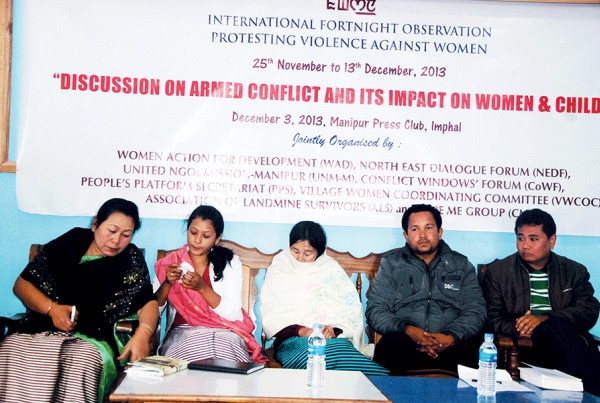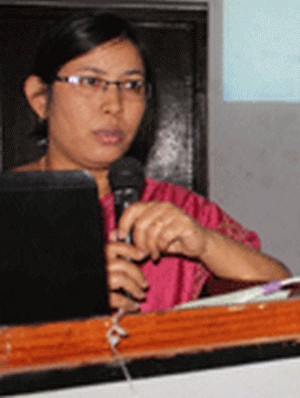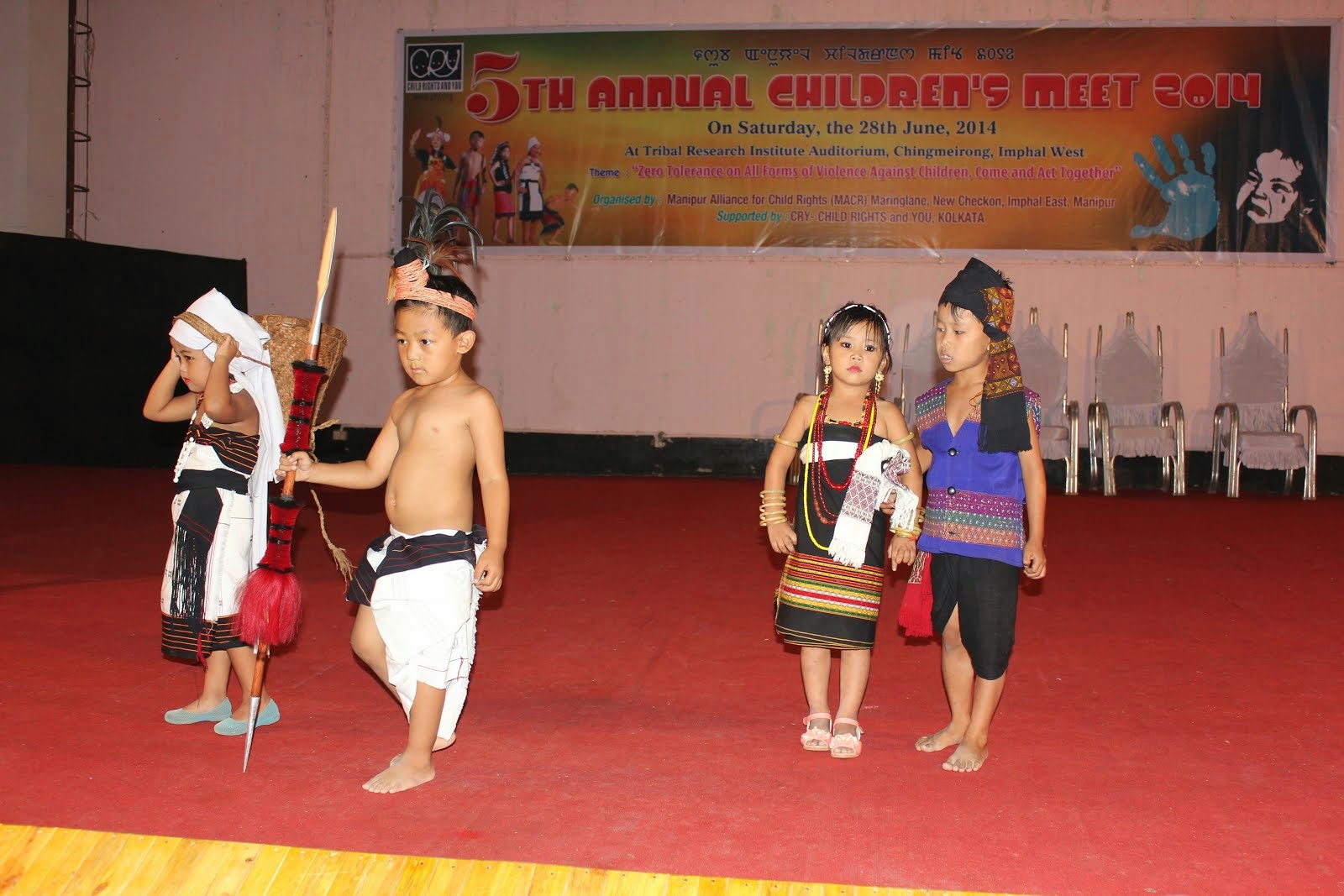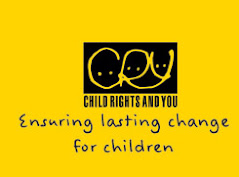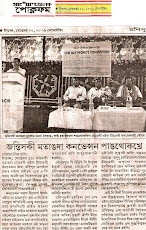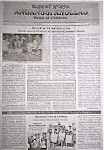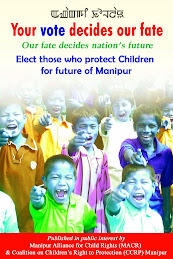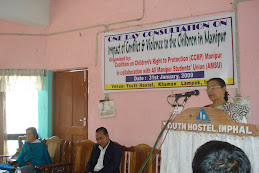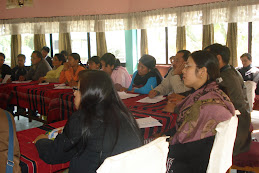Wednesday, 4 September 2013, 3:25 pmPress Release: Asian Legal Resource Centre
India: Between the Rock and a Hard Place - Children In Armed Conflict
1. India ratified the Convention on the Rights of the Child, in 1992 with a declaration on Article 32. It has ratified the two Optional Protocols to the Convention, on the Involvement of Children in Armed Conflict on 30 November 2005 and on Sale of Children, Child Prostitution, and Child Pornography on 16 August 2005. Yet, children in India face manifold forms of human rights abuses, most importantly in regions where armed conflicts exist, like in the north-eastern region of the country.
2. The north-eastern region of India, is comprised of eight states, Arunachal Pradesh; Assam; Meghalaya; Manipur; Mizoram; Nagaland; Sikkim; and Tripura. The region shares 90% of its border with Bhutan, China, Myanmar and Bangladesh and is connected to the rest of India with a 20-km-long strip of land known as the 'Chicken's Neck'. The region is home to an estimated 40 million people and comprises over 200 recognised ethnic, religious, and tribal groups.
3. Multiple conflicts - between armed insurgent groups and between some of these groups and the government - dominates the region since the last five decades. The government declared the region a 'disturbed area' in 1955, and it is renewed periodically until today invoking the provisions of the Disturbed Areas Act, 1955 and the Armed Forces (Special Powers) Act, 1958 (AFSPA).
4. The government's adoption of a military strategy to resist armed insurgency has highly militarised and kept the region underdeveloped. The security architecture in the region operates under a 'unified command structure' comprised of the army, paramilitary, and the civilian administration, where operational responsibility is with the army. An estimated total of 500,000 armed police and military groups are stationed in the region.
5. AFSPA provides statutory impunity to the state's armed units stationed in the region, including for the use of lethal force, the right to enter and search premises without a warrant, to detain and arrest suspects and to seize private property, all on mere suspicion. The Ministry of Home Affairs, in 2011, has admitted in its report that the prolonged armed conflict in the region has resulted in the formation of at least 79 armed insurgent groups (including their splinter factions).
6. The ensuing environment of violence has fostered the culture of unaccountability thus furthering large numbers of extrajudicial executions in the region, committed by both the state and non-state actors. The government admits that there are no exact figures available with the civil society or with the government regarding the number of lives lost in the region to extrajudicial executions undertaken by the state and non-state actors, including that of women and children.
7. The UN Special Rapporteur on extrajudicial, summary or arbitrary executions after visiting the region in 2012, expressed concern about this in his report. Others, including government-sponsored commissions that studied the effects of militarisation and the adverse impact of AFSPA in the region, share this concern. Of particular concern is the welfare of children, caught in this armed conflict, having denied adequate schooling, and having to live in an environment of deep psychological trauma, passed on over generations that has engulfed the region, arising out of violence.
8. The government on the contrary, has denied the existence of armed conflict in the country, in its report to the UN Child Rights Committee. This is enumerated in the state party report [CRC/C/93/Add.5, page 323] where the government elaborates on its commitment on the implementation of Article 38 of the Child Rights Convention. However, annual reports of the Ministry of Home Affairs repeatedly refer to conflicts between security forces and armed opposition groups in the country.
9. UN bodies have expressed concern about the armed conflict in north-eastern states. The Human Rights Committee has urged the government that the application of emergency provisions in the region to be closely monitored to ensure strict compliance of the ICCPR. CEDAW and CERD referring to the report of the Committee to Review the Armed Forces (Special Powers) Act (1958) set up by the Ministry of Home Affairs raised particular concerns about AFSPA, requesting the government to repeal it.
10. Extrajudicial execution committed by the security forces are commonly known as 'fake encounters' in India. In much of the cases documented, such encounters happen after an arbitrary detention of the victim. The number of such executions is so high, that today there are women groups in the region named 'gun widows'.
11. It is estimated, that every year, about 300 new women are widowed since 2008 in Manipur alone. The widows lack financial independence since most of them depended upon their husbands' income to run the family and to meet the needs of their children. This forces widowed mothers to let their children work, to fetch an income, than be at school. Child labour also poses additional threats to children like sexual exploitation and trafficking.
12. Disadvantaged communities hardly register births in their family and schooling is often a delayed decision. Often school enrolment certificates are used as the birth certificates in the region. Hence, in rural areas, such certificates do not represent the accurate age of the person. Such certificates are considered valid for recruitment in the army. Hence, it cannot be ruled out, that children from the region are not recruited in the armed forces.
13. Special security elite commando unit like the Naga Regiment is raised from the region. Recruitment to such units is used as inducement by the state to get local recruits into the armed forces. Additionally, the state also encourages recruitment from the 'surrendered militants' who often join a special force called Indian Reserve Battalion (IRB).
14. The insurgent groups forcibly draft children into their ranks. The state recruits many of these children into the armed forces, on the basis of the forged documents that show inflated age. Between 2005 and 2012, the government claims, that 7893 militants have surrendered. Given the facts on the ground, it is possible that a large proportion of them are recruited to the IRB, of which many could be children.
15. The state rewards officers who organise the surrendering of militants. It is a common practice in the region, that army or state government officers demanding bribes from civilians to 'organise' a surrender, in which civilians pretend to be surrendering militants and later recruited to the army. Large-scale unemployment, widespread corruption and the prevalent culture of non-accountability perpetuate this, and sadly, often children are recruited into the armed forces of the state.
16. Additionally, children are also recruited into local state forces as Special Police Officers (SPOs) under Section 17 of the Indian Police Act, 1861. This is a completely unmonitored process, where in fact families encourage children to apply for the job, since the job fetches income. Section 19 of the Act, render it a punishable offense, for anyone refusing the government's order to serve as an SPO. The recruitment, arms training and deployment of the SPOs is a debated subject, since the SPOs are not regular police officers. For all practical purposes, civilians are recruited, armed, and deployed to fight neighbours against neighbours.
17. Insurgent groups by force recruit children in the region. In 2008 January, the Nationalist Socialist Council of Nagaland (Khaplang), an insurgent group operating in the region, kidnapped 39 students from Tirap and Changlang districts of Arunachal Pradesh. Though 32 returned home, the rest are reportedly undergoing armed training in Myanmar.
18. Armed insurgent groups, like the Kangleipak Communist Party-Military Council (KCPMC), and Kanglei Yawol Kanna Lup (KYKL), both operating in Manipur, also forcibly recruit children to their armed units each year. According to the Manipur State Police sources, at least 66 children aged between 8 and 17, have been kidnapped and recruited as child soldiers by the rebels in Manipur in the past five years. The United Liberation Front of Assam (ULFA), an insurgent group operating in Assam, uses teenagers to ferry explosives and to detonate grenades. Cases of disappearances of children from the custody of the state security forces are also common.
19. Parents and guardians often refuse to report such recruitment fearing that the state will accuse them as anti-national elements. It is a common practice by the local authorities to detain torture and fabricate false charges against family members to force children recruited by the insurgent groups to surrender.
20. Those children, who are fortunate to be alive and not drafted by the armed groups, often have no school to attend. Available data on security personnel occupying school buildings as campuses in Tripura, a state where the government claims to have succeeded in countering insurgency is alarming. The government security forces occupy 21 schools and 14 other educational institutions as their temporary camps.
21. The presence of army in educational institutions and its premises is one of the causes for dropouts of female students. The school dropout rate in Tripura, particularly amongst tribal children, is alarmingly high, especially after primary schooling. The dropouts are obvious targets of insurgent groups for recruitment.
22. In all the eight states in the region, the dropout rate of children of age group 6-11 from school is 45.91% for boys and 44.87% for girls. This is way above the national average, which is 31.81% for boys and 25.42% for girls. For the age group 6-14, the dropout rate is even higher, with the rate of boys leaving school at 60.08% and girls at 59.32% by comparison to the national average 50.84%.
23. In addition, warring ethnic and political groups organise strikes affecting the mobility of children and often forced closure of schools. It is common in the region, for schools to remain closed for four to six months due to strikes.
24. Given the above, the Asian Legal Resource Centre (ALRC) urges the Human Rights Council to:
a. Engage in constructive dialogues with the Government of India to ensure that the government take all measures to reduce threats faced by children in conflict zones in India, and for the Council to spare no resources to assist state and civil society groups working on the issue in India;
b. Assist national bodies like the National Commission for Protection of Child Rights and similar State Commission to actively engage in the north-eastern region of India with a view to critically assess and effectively assist the government in protecting child rights;
c. Request the government to appreciate the urgent need for setting up child trauma counselling centres across the region, preferably in each district subdivision, so that children who suffer from direct and trans-generational trauma could seek and obtain assistance;
d. Request the government to reconsider immediately its policy of fighting dissent with military force, and at the very least to repeal the draconian legislation, the Armed Forces (Special Powers) Act 1958.
# # #
About the ALRC: The Asian Legal Resource Centre is an independent regional non-governmental organisation holding general consultative status with the Economic and Social Council of the United Nations. It is the sister organisation of the Asian Human Rights Commission. The Hong Kong-based group seeks to strengthen and encourage positive action on legal and human rights issues at the local and national levels throughout Asia.
